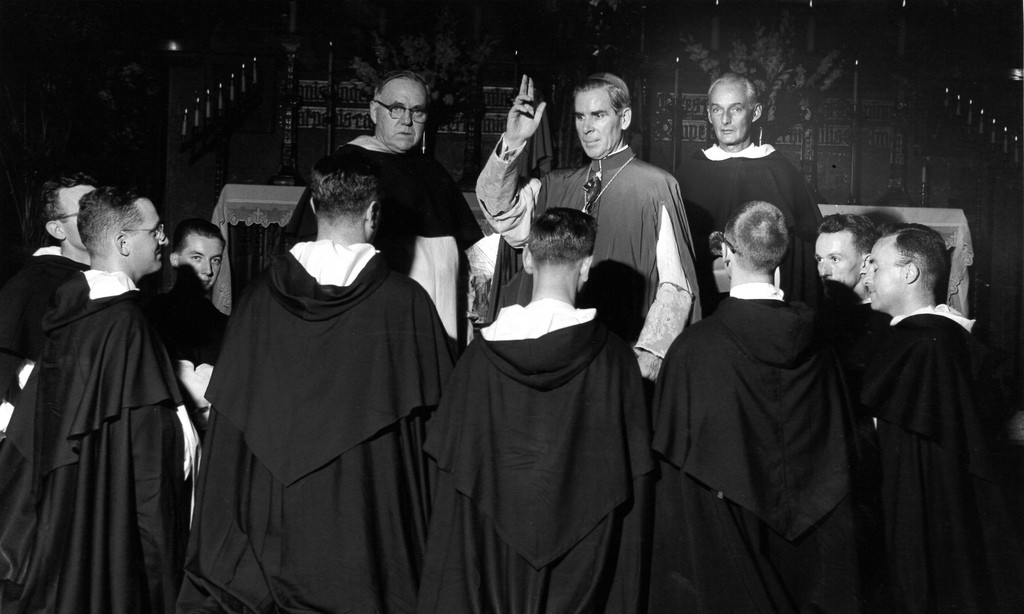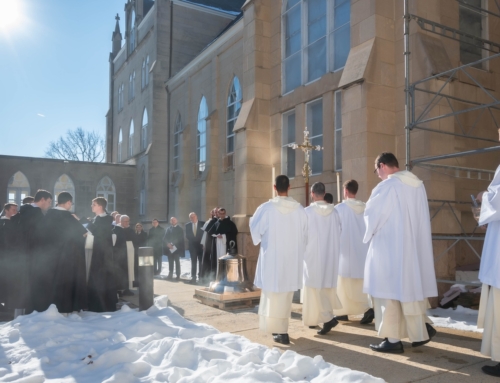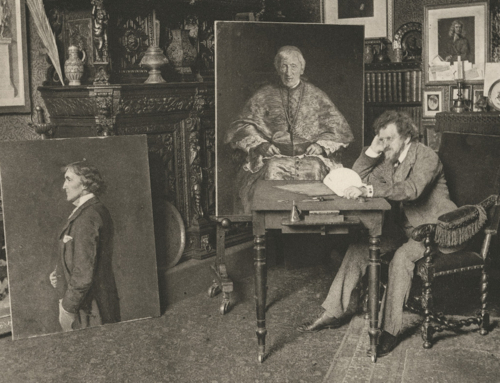This post is the second part of a series on Archbishop Fulton Sheen.
St. Philip Neri once remarked to a Dominican friar, “All that I have of good I owe to your fathers of San Marco.” Could the same be said of Fulton Sheen?
In his autobiography, Sheen speaks movingly (and amusingly) about his friendship with a certain Fr. Smith:
For many years our dean in the School of Philosophy was Father Ignatius Smith, a Dominican, who was not only a most brilliant teacher, but also a most renowned preacher. My class every afternoon was at four o’clock. Before going into the classroom which immediately adjoined Dr. Smith’s, I would go in and visit with him for ten minutes. He would walk out of the office with me and tell me a funny story as I was on my way to the classroom, so that I would enter the classroom laughing. My association with Dr. Smith, which lasted for years, was one of the happiest of my life.
In his history of the Dominican province of St. Joseph, Fr. Fenwick’s “Little American Province,” Fr. John Vidmar, O.P., tells a charming story that sheds light on another side of the relationship:
When a young student remarked to Smith after a lecture at Catholic University that his resemblance to Fulton Sheen was remarkable, Smith put his head back, and, in slow resonant tones, said, “I taught him.”
While it would perhaps be going too far to attribute all of Fulton Sheen’s goodness to Ignatius Smith, it is striking to note the aspect of joy and good humor that Sheen associates with Smith. (Although Sheen doesn’t give any specific examples, one story that is part of the oral tradition at the Dominican House of Studies is that Ignatius Smith, a talented organist, would occasionally slip in a few bars of “Goodnight Ladies” into the recessional as the good Sisters were departing from Sunday Vespers.) Ignatius Smith was able to share a sense of joy with his friend, which Sheen in turn passed on to his students. Entering the classroom laughing, Sheen could give the whole classroom the opportunity to get in on the joke.
For St. Thomas Aquinas, the great master of Fulton Sheen and Ignatius Smith alike, the virtue of eutrapelia (playfulness or pleasantness) is necessary in order to have a proper balance in our lives and to avoid the soul becoming overburdened with seriousness. As Sheen writes in his autobiography, “[T]here is a close relationship between faith and humor. We say of those who lack a sense of humor that they are ‘too thick’; that means they are opaque like a brick wall. Humor, on the contrary, is ‘seeing through’ things like a windowpane. Materialists, humanists, and atheists all take this world very seriously because it is the only world they are ever going to have. He who possesses faith knows that this world is not the only one, and therefore can be regarded rather lightly.”
We are but pilgrims in this present world, journeying to our heavenly homeland. But we have a choice: we can be like whining children, grating the ears of their parents in the front seats with cries of “are we there yet?”—or we can entertain our fellow pilgrims with humor and good cheer.
✠
Image: Archbishop Fulton Sheen blessing Dominican missionaries to Lebanon and Pakistan (Dominican House of Studies, Washington, D.C., August 31, 1956)







